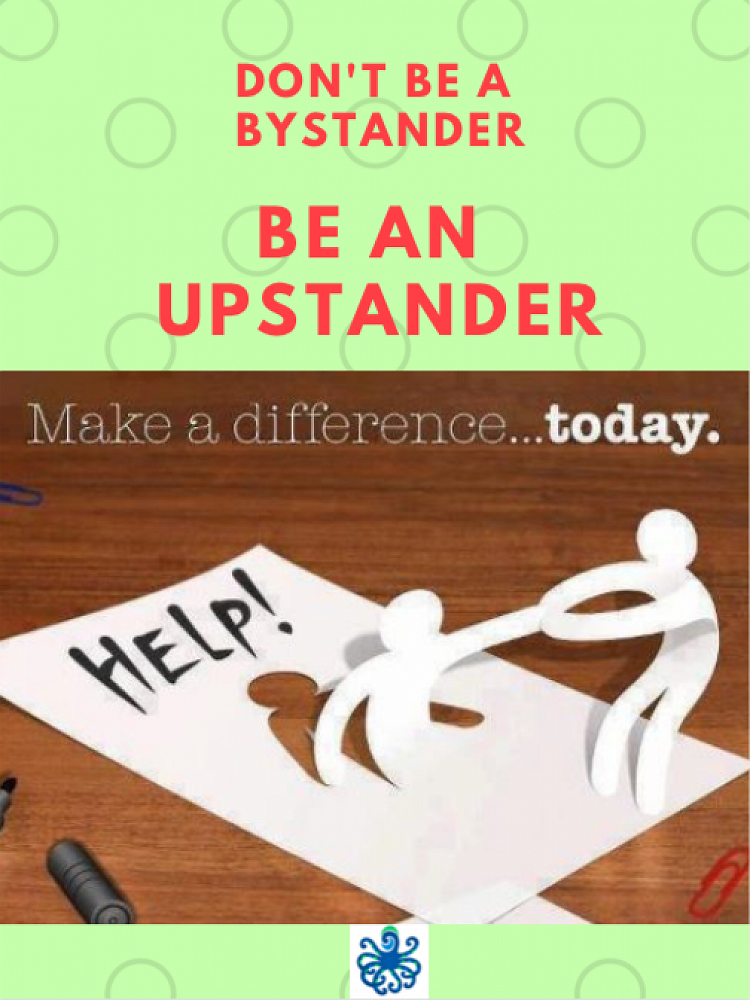
PB4L: Be an Upstander - not a Bystander
For the next two weeks we are looking at the concept of being an upstander (as opposed to a bystander). An upstander is defined as someone who recognises when something is wrong and acts to make it right. For example, when we stand up for what is right, and do our best to help support and protect someone who is being hurt, we are being socially responsible.
There are many ways to take a stand, such as donating to a cause we believe in, attending a rally, speaking up for someone who was wronged, writing a letter, signing a petition, etc. It's also important not to just take a stand for others, but also for ourselves. When we stand up for ourselves and what we believe in from a place of respect and not anger or resentment, we inspire others and build our self confidence.
We will be exploring and practicing strategies for being an upstander. For many of us, these strategies can be difficult and require a lot of practice. Even for adults.
Some interesting conversations to have with your children could be along the lines of these scenarios:
- A new student starts at your school this week, and he is having trouble fitting in. Some of your friends have been laughing behind his back. What would you do?
- Someone shoves the girl in front of you. You want to stick up for them, but you don’t want to get into a fight. What would you do?
- A student at school thinks it’s funny to keep teasing a friend in your class. You’re afraid she’s going to start hating school. What would you do?
This guide will help parents, whānau and schools to work together to tackle bullying behaviour. It includes information about bullying and what parents and whānau can do.
Download Tackling Bullying A guide for parents and whanau [682 KB, pdf]
Gallery

